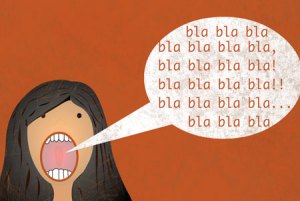You Think You Aced the Interview? Chances Are, You Should Keep Looking…
So you have been looking for a new gig for a while and finally you find one that is worth checking out. You get on LinkedIn and see if you know anyone in your network working there now or even in the past. You find out the company is indeed a place you could see yourself in the future and continue to take the next steps.  You ask your colleague to make an introduction for you with the hiring manager and you also apply online through the company website.
You ask your colleague to make an introduction for you with the hiring manager and you also apply online through the company website.
All of this assumes of course you actually HAVE a LinkedIn profile which you have been building as well as the fact you are utilizing the relationships you have been cultivating. If however, for some reason you have not then please let me know and I would be more than happy to assist you.
Well your colleague makes the introduction for you through LinkedIn and your previous experiences coupled with your complete LinkedIn profile land you a telephone interview with the hiring manager. It’s only 30-45 minutes, but you are certain you will wow her and she will want you to come in and meet the rest of the team right away. As with most telephone interviews, this is just to screen you to see if you would be a fit with the team, your skills on your resume all match up and what type of personality you have. This is often done by an internal recruiter, HR, or someone else, but since you showed the gumption to seek out the hiring manager she decides to perform the phone screen herself.
Right away you know you are moving on to the next stage in the process. You did your research and aside from the colleague making the initial introduction, you tell the manager about the multiple similarities the two of you share which you found out by following her on Twitter. You tell her how your background is a perfect match for what they are looking for and how you would be able to come in right away and make a difference and how much value you bring and this and that and everything else. And on and on and on.
While all of this is ok in moderation, that is the magic word at this stage of the game. MODERATION. You may be very well suited to have an immediate impact. But how do you know exactly what this organization is looking for or even this particular group? More than likely you know what they do and what they are looking for by the job description, but all too often even the hiring manager doesn’t TRULY know what is needed so chances are slim you have any clue at all!
Again, I am not against selling yourself to some degree, but just make sure you don’t over do it. In fact, I encourage you to sell yourself!  Interviewing is about you selling yourself and your skills while the company sells themselves and the opportunity. In theory. And while many have the misconception that a great salesperson is someone that talks a lot, that couldn’t be further from the truth. They DO talk a lot, but if they are doing it properly, they are asking questions or if they are answering questions, they are keeping it brief. When you are talking the entire interview of course you think it went well. As humans we love nothing more than to hear our own name and our own voice. So if YOU are doing all of the talking you think everything is going well and you are a shoe in for the job. Again, this is wrong.
Interviewing is about you selling yourself and your skills while the company sells themselves and the opportunity. In theory. And while many have the misconception that a great salesperson is someone that talks a lot, that couldn’t be further from the truth. They DO talk a lot, but if they are doing it properly, they are asking questions or if they are answering questions, they are keeping it brief. When you are talking the entire interview of course you think it went well. As humans we love nothing more than to hear our own name and our own voice. So if YOU are doing all of the talking you think everything is going well and you are a shoe in for the job. Again, this is wrong.
Almost 100% of the time when someone calls me after their interview and tells me they aced it and they are certain it will go to the next level or they will get the job I know I need to find someone else to fill the position. There are times where that isn’t the case, but it’s rare. Confidence is great and all, but you spent the whole time talking and didn’t give the manager the chance to get to really know you and build rapport. In sales (and interviews) building trust and rapport is so important that you can toss everything else out the window if you don’t have it. That is why I say it’s great in moderation, but just make sure you are having a conversation, not a monologue. Ask how she progressed to the current position. What drew her to the company when she first started? Something! When you actually converse it allows you to uncover some of the needs possibly not mentioned on the job description which will allow you to speak of your unique attributes and how they relate to the position.
One of the main, if not THE main reason for speaking too much is being excited and/or nervous. Trust me, I am quite guilty of this. This is why the importance of practice interviews is a constant subject when performing searches on interview preparation. By knowing what you are going to say, you are able to listen more and when the time is right sell your skills which will in turn enhance your chances to beat out the competition. 
So next time you finish up an interview, look back and ask yourself if you did all of the talking. If your answer is “yes,” it may not be the best idea to start writing your two weeks notice. If the answer is “no,” it’s still not the best idea to start writing your two weeks notice, but the odds will be stacked higher in your favor and you may be that much closer to your next great opportunity!
What do you think? Have you been in this situation before or know someone who has? Please leave me some comments below!
-
Comment by Sandra McCartt on September 1, 2011 at 2:00am
-
Well written post! I can count on one hand the number of times candidates have said they thought the interview went badly. The thing that always amazes me is that a lot of candidates can't even tell me in any detail what was said to them in the intervirew when we try to debrief them. It is my take that,as you have pointed out, that happens because the candidate has done too much non stop talking and not enough exchange of information and/or been really able to pick up on the verbal and nonverbal cues of the person they are interviewing with.
When I know that an interview has gone well is when my candidate is able to tell me why they think it went well and is able to articulate what they learned about the person with whom they interviewed. I have found that it helps my candidates if I tell them that when they call me after the interview I want them to be able to tell me something they learned about the person and the company that I had been able to tell them before the interview. That way both of us learn something.
-
Comment by Adam Bogren on September 1, 2011 at 9:02am
-
Thanks for taking the time to read and comment Sandra! I think you make a very great point about having the candidates tell what they learn about the person and company. Obviously candidates heavily rely on what we can tell them before the interview so they are prepared. By having them be on the lookout for something new helps plant the seed that they need to be listening and asking questions to come away with more information.
-
Comment by Nichole on September 1, 2011 at 11:38am
-
Great perspective, never really looked at it that way!
-
Comment by Jacob S. Madsen on September 1, 2011 at 11:43am
-
Hi
All the way from the UK, super post, very true and can I recognize myself in this, - ooh yes unfortunately (some talking is part of the role of a recruiter trying to make someone interested)
The points made are subtle or very loud pointers (it can be loud if the interviewer is of the more introvert kind) better be aware of them than not.
-
Comment by Adam Bogren on September 1, 2011 at 11:58am
-
Thanks Nichole, I appreciate it!
Jacob, glad to be making a worldwide impact! Very subtle or very loud the unfortunate part is that they exist! Hopefully it will help others during the interview process and they will be a little better prepared.
Thanks to both of you for taking the time to read and comment!
-
Comment by Michelle Martens on September 15, 2011 at 5:18pm
-
I too am in the recruiting business. As soon as a candidate tells me he aced the interview/it went great etcetc I know I better have strong back ups ready. If, on the other hand, I get feedback that suggests the candidate thinks it went 'ok' but they weren't really sure, I begin to feel a little bit better. It's almost fail proof.
-
Comment by Luisa on September 16, 2011 at 4:52pm
-
Your evaluation is spot on. When a candidate can tell me something they learned about the company or interviewer during the interview, I know they had to have been listening some of the time. If a candidate can sit still, in the chair and in their head, and listen without trying to formulate or massage their next answer, they will appear interested and perhaps pick up some cues. At least they'll pick up some points for not talking too much or in their nervousness stepping on the interviewer's speech.
Comment
Subscribe
All the recruiting news you see here, delivered straight to your inbox.
Just enter your e-mail address below
RecruitingBlogs on Twitter
Groups
-
Virtual Recruiters Netwo…
620 members
-
Recruiters On LinkedIn
1801 members
-
Corporate Recruiters
316 members
-
Recruiting tips for begi…
180 members
-
The Recruiting Bar
190 members
-
Recruiting Humor
222 members
-
News from the Recruiting…
34 members
-
Contractors Recruitment
62 members
-
Recruitment Process Outs…
194 members
-
Independent Recruiters
530 members
© 2025 All Rights Reserved
Powered by
![]()
Badges | Report an Issue | Privacy Policy | Terms of Service
About
With over 100K strong in our network, RecruitingBlogs.com is part of the RecruitingDaily.com, LLC family of Recruiting and HR communities.
Our goal is to provide information that is meaningful. Without compromise, our community comes first.
Join the Network!
RecruitingDaily.com
One Reservoir Corporate Drive
4 Research Drive – Suite 402
Shelton, CT 06484
Email us: info@recruitingdaily.com

You need to be a member of RecruitingBlogs to add comments!
Join RecruitingBlogs